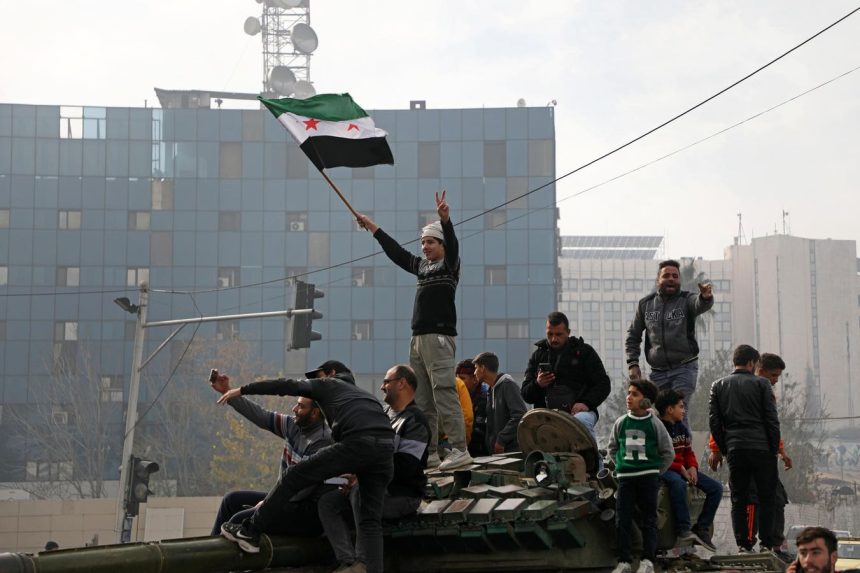Russia’s incremental territorial gains in Ukraine are being offset by significant geopolitical losses on the world stage, eroding President Putin’s legitimacy and influence. The Kremlin’s overextended military commitments in Ukraine have depleted resources and exposed vulnerabilities, leading to a cascading series of setbacks across its global sphere of influence. While Putin may view these sacrifices as acceptable if they ultimately secure victory in Ukraine, the long-term consequences of this strategic overreach could be far-reaching and detrimental to Russia’s standing in the world.
The rapid collapse of Russia’s position in Syria serves as a prime example of this global retreat. While the diversion of resources to the Ukrainian front played a role, there are indications of a more complex dynamic at play. Evidence suggests a possible agreement between Russia and Israel, wherein Russia ceded influence in Syria in exchange for Israel being given leeway to counter Iranian proxies and potentially even directly target Iran itself. A high-ranking Iranian military official publicly accused Russia of deception, alleging that Russia had feigned bombing opposition forces while actually targeting empty fields and had previously disabled radar systems, allowing Israeli strikes on Syrian targets. This purported collaboration between Russia and Israel, though largely unacknowledged in mainstream media, underscores the intricate web of geopolitical maneuvering underlying the Syrian conflict.
These events in Syria, coupled with the ongoing war of attrition in Ukraine, have significantly tarnished Russia’s image of power, emboldening adversaries around the globe. Turkey, in particular, has capitalized on the situation, expanding its influence in Syria and other regions. Turkey has imposed restrictions on Russian ships in its ports and deployed proxy forces in Libya against Russian-backed General Haftar. Elsewhere, anti-Russian sentiment is rising. Pro-Russian leaders face pressure in Georgia’s breakaway regions, with Abkhazia’s president resigning amid protests. Azerbaijan publicly criticized Moscow for the downing of a civilian aircraft over Chechnya. Chechen leader Kadyrov finds himself in disfavor due to his outspoken support for individuals linked to assassination attempts in Uzbekistan. Pro-Russian regimes in Moldova’s Transnistria region are facing instability due to disruptions in energy supplies from Russia. Armenia has distanced itself from its alliance with Moscow. Even in Ukraine, Russia has increasingly relied on foreign mercenaries as its own troop numbers dwindle. These developments collectively point to a decline in Russia’s influence and a growing willingness of other nations to challenge Moscow’s authority.
The primary beneficiaries of this shift in the geopolitical landscape appear to be Israel and Turkey. Turkey’s President Erdogan is promoting a pan-Turkic alliance extending into Russia’s Central Asian sphere of influence. However, the broader implications of Russia’s retreat present a significant opportunity, particularly for the West, to counter Moscow’s expansionist ambitions. Russia’s overreach in Ukraine has created multiple avenues for the Western alliance to curb its efforts to rebuild its empire. Despite the increasing influence of other global and regional powers in Europe, the Middle East, and the Far East, the West has consistently missed opportunities to effectively counter this expansion.
A key example of this missed opportunity is the West’s underestimation of the significance of events in Tbilisi, Georgia. Russia’s unpunished invasion of Georgia in 2008 and subsequent regime change ultimately paved the way for the invasions of Ukraine. Recent protests in Georgia aimed at ousting the pro-Russian government have finally garnered some support within the US Congress, albeit belatedly. This underscores the need for the West to take a more proactive and strategic approach to countering Russian influence.
To effectively roll back Putin’s network of power and influence, Western leaders must openly contemplate a post-Putin Russia, potentially even a smaller Russia. Such discussions would signal a genuine commitment to leveraging the evolving situation in Syria and elsewhere to create a more stable future. However, this crucial conversation is yet to materialize, hindering the West’s ability to capitalize on the current geopolitical shifts and effectively challenge Russia’s aspirations. The absence of such forward-thinking discussions suggests a lack of preparedness and strategic vision within the Western alliance, potentially allowing valuable opportunities to slip away. It remains imperative for the West to recognize and seize these opportunities to reshape the geopolitical landscape and secure a more stable and secure future.
The ongoing conflict in Ukraine and the subsequent ripple effects across the global stage represent a watershed moment in international relations. Russia’s aggressive actions have inadvertently created a complex and dynamic situation with far-reaching consequences. While the ultimate outcome remains uncertain, the current trajectory indicates a decline in Russia’s global influence and the potential for a significant realignment of power. The West, in particular, faces a critical juncture, requiring a more assertive and strategic approach to capitalize on the emerging opportunities and mitigate the potential risks. The failure to do so could have lasting implications for global stability and security.



